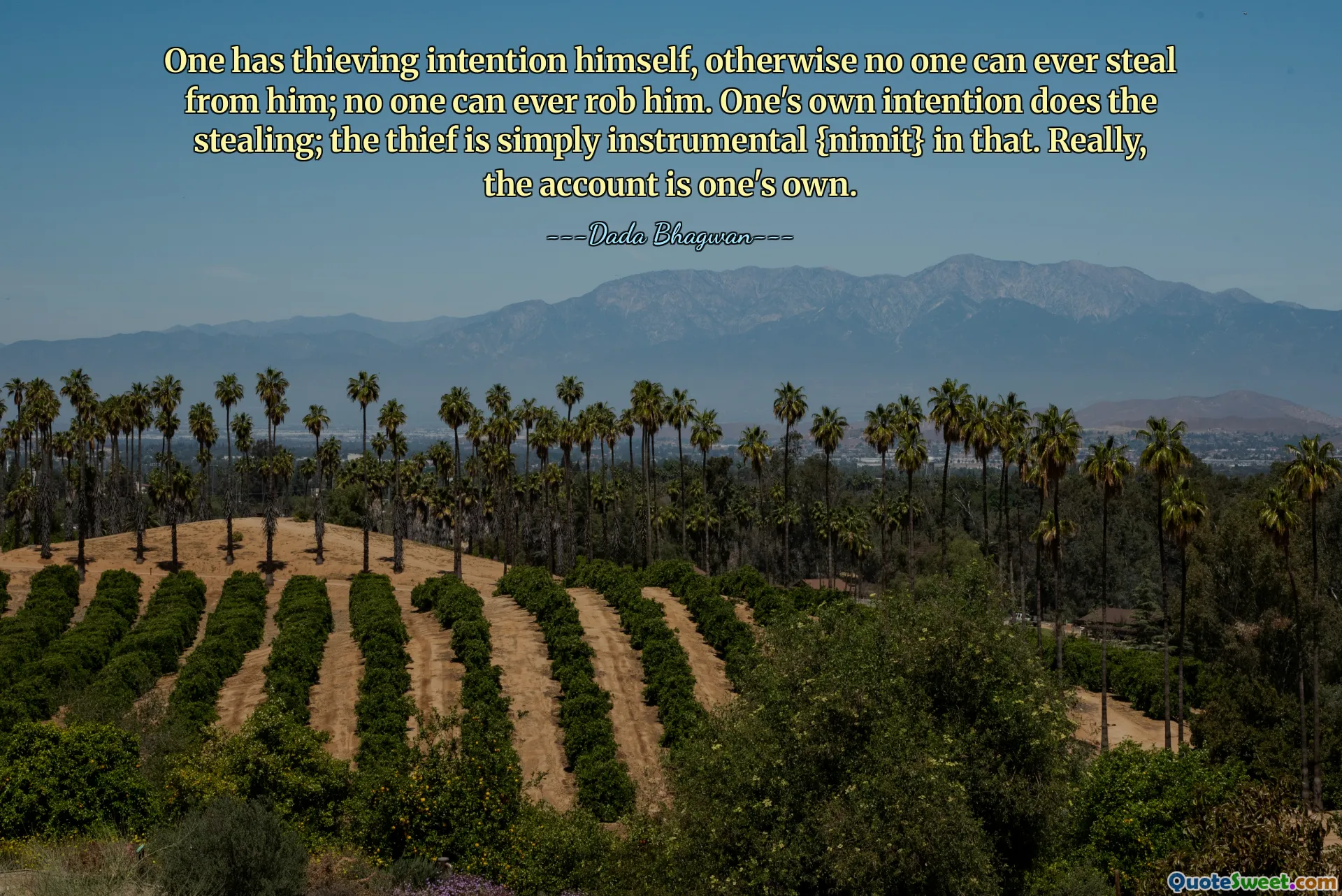
One has thieving intention himself, otherwise no one can ever steal from him; no one can ever rob him. One's own intention does the stealing; the thief is simply instrumental {nimit} in that. Really, the account is one's own.
This quote emphasizes the profound understanding of personal responsibility and internal motivations behind actions such as theft or harm. It suggests that external acts of stealing or wrongdoing are rooted in one's inner desires and intentions. If someone truly had no such intentions, no external circumstance could force them into stealing or harm. The 'thief' or 'robber' is merely a facilitator or instrument—an external agent—whereas the true catalyst lies within the individual's own thoughts and intentions.
This idea invites a deep reflection on accountability. Often, society tends to blame external factors or other people for wrongful actions. However, the quote challenges us to look inward and recognize how our inner impulses shape our external behaviors. It portrays the external act as a manifestation of internal conflicts or desires, implying that genuine change must originate from within.
Additionally, the mention of 'nimit', which refers to an instrument or facilitator, signifies that external circumstances or individuals serve only as tools in the larger scheme, but the root cause remains in the personal mindset. Such insight encourages self-awareness and introspection, stressing that overcoming wrongful actions requires controlling one's inner thoughts and intentions.
Understanding this not only fosters personal growth but also promotes compassion. Recognizing that everyone acts based on their internal motivations can lead to a more forgiving and empathetic attitude toward others' faults. Ultimately, it underscores that true change and liberation are achieved by mastering one's internal world rather than solely external efforts.
In essence, this quote advocates for an inward journey—an awareness of one's motivations—and suggests that external acts are simply natural consequences of internal states. It invites us to take responsibility for our own thoughts and to cultivate purity and integrity from within, because that is where the true root of actions resides.











